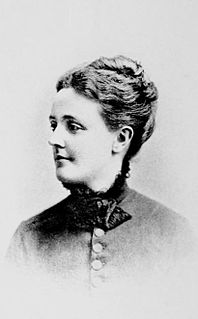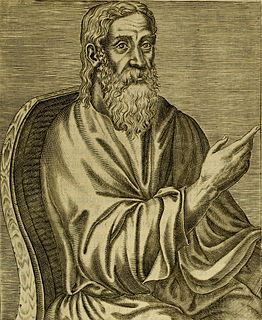A Quote by Victor Hugo
Is there not in every human soul a primitive spark, a divine element, incorruptible in this world and immortal in the next, which can be developed by goodness, kindled, lit up, and made to radiate, and which evil can never entirely extinguish.
Related Quotes
The whole language of nature informs us, that in animated beings there is something above our powers of investigation; something which employs, combines, and arranges the gross elements of matter - a spark of celestial fire, by which life is kindled and preserved, and which, if even the instruments it employs are indestructible in their essence, must itself, of necessity, be immortal.
A man is born into this world with only a tiny spark of goodness in him. The spark is God, it is the soul; the rest is ugliness and evil, a shell. The spark must be guarded like a treasure, it must be nurtured, it must be fanned into flame. It must learn to seek out other sparks, it must dominate the shell. Anything can be a shell, Reuven. Anything. Indifference, laziness, brutality, and genius. Yes, even a great mind can be a shell and choke the spark.
Goodness has no opposite. Most of us consider goodness as the opposite of the bad or evil and so throughout history in any culture goodness has been considered the other face of that which is brutal. So man has always struggled against evil in order to be good; but goodness can never come into being if there is any form of violence or struggle.
There's a stronger and more kind of controversial element of Plotinus' view of matter, which is that he actually identifies it with evil, or at least the principle of evil, and the reason for this is that he thinks that the the One, the highest principle, can also be thought of as the Good, and that's kind of surprising like, because he has this negative theology which doesn't allow us to say anything about the One. But he believes that it can be seen as the principle of goodness as well as unity, and that if you think about it, goodness and unity sort of go along with each other.
Believers keep up and maintain their walk with God by secret prayer. The spirit of grace is always accompanied with the spirit of supplication. It is the very breath of the new creature, the fan of the divine life, whereby the spark of holy fire, kindled in the soul by God, is not only kept in, but raised into a flame.
Because the divine goodness could not be adequately represented by one creature alone, God produced many and diverse creatures, that what was wanting in one in the representation of the divine goodness might be supplied by another. For goodness, which in God is simple and uniform, in creatures is manifold and divided. Thus the whole universe together participates in the divine goodness more perfectly and represents it better than any single creature.
It's this expandable capacity to represent reasons that we have that gives us a soul. But what's it made of? It's made of neurons. It's made of lots of tiny robots. And we can actually explain the structure and operation of that kind of soul, whereas an eternal, immortal, immaterial soul is just a metaphysical rug under which you sweep your embarrassment for not having any explanation.
All soul is immortal. For that which is always in movement is immortal; that which moves something else, and is moved by something else, in ceasing from movement ceases from living. So only that which moves itself, because it does not abandon itself, never stops moving. But it is also source and first principle of movement for the other things which move.





































